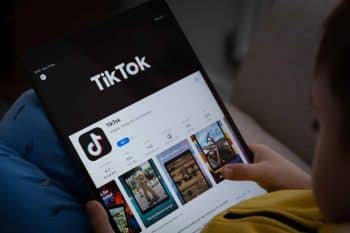Home » Bizarre Lawsuits • Spotlight » Three very strange lawsuits which didn’t go to plan
Three very strange lawsuits which didn’t go to plan
https://www.whatjobs.com/news/what-news-topical/the-man-who-sued-basketball-legend-michael-jordan-for-looking-like-him-and-other-extraordinary-lawsuits

By Hugh Fort in Bizarre Lawsuits, posted January 24, 2024

Over the years, there have undoubtedly been some bizarre lawsuits that make you shake your head and wonder what people are thinking.
Most of the cases come from the US.
Some people have strong views, and sometimes their thoughts cloud their judgment and common sense.
Sometimes they get so blinded by their quest for justice they spend a lot of money going to court.
Despite their belief they are there to fight a gross injustice, it often doesn't go well.
READ MORE: THE MAN WHO SUED HIMSELF AND TWO OTHER RIDICULOUS LAWSUITS
These cases tend to result in failure and ridicule for those involved, as well as a massive legal bill.
Student sues teacher over a C+ grade
Students often believe flattery and extra work might lead to better grades.
Some more unscrupulous pupils have even tried to bribe their teachers.
In one case, a pupil decided to take legal action when they didn't get the grade they wanted.
Megan Thode, a graduate student, was appalled her C+ grade would stop her from getting the degree she wanted.
She said this would ruin her aspirations of becoming a licensed therapist.
She claimed the grade meant her missing out on $1.3 million in lost earnings.
The case was one of the many lawsuits that made it court, but was ultimately unsuccessful.
Judge Emil Giordano said: "Thode nonetheless failed to prove her grade was based on anything other than 'purely academic evaluation' and her professor's conclusion that she 'was unprepared to move on to the next level' of her course."
The case was dismissed.
Man tries to sue Michael Jordan for looking like him
Who doesn't want to be told they look like Michael Jordan?
The freakishly athletic NBA legend is one of the most recognizable sportspeople on the planet.
This is despite having played his final game more than 20 years ago.
However, one man, Allen Heckard, from Portland, wasn't happy when he realized he looked a lot like him.
In 2006 Heckard filed a lawsuit against Jordan and Phil Knight, the founder of Nike, demanding $832 million.
$416 million out of the total amount was aimed at Michael Jordan simply for having facial features similar to his.
The other $416 million was directed at Nike for turning Jordan into the public figure he is.
Heckard had been mistaken for the NBA superstar over the last 15 years of his life.
He told the court that he experienced emotional pain, torment, slander, and personal injury.
It seems blindingly obvious that it was neither Jordan's fault for looking like Heckard, nor Nike's desire to sponsor the man the most famous sportsman in the world that caused any of this pain.
Heckard eventually dropped the suit against the two in 2006
He filed the case without a lawyer of his own, and perhaps realized the mighty Nike lawyers and Jordan's own, no doubt highly paid, legal team might also be a formidable opponent.
Heckard eventually dropped the suit against the two in 2006.
Looking to boost your online brand? Create your FREE business profile at WhatBiz? Here.
Not so happy meal
A father sued McDonald's for selling Happy Meals to kids.
That might sound as ridiculous as the other lawsuits mentioned, but this is actually based around Canadian law and was successful.
Antonio Bramante, from Quebec, would visit the fast food chain regularly and would usually bring at least one of his children.
However, he objected to Happy Meal advertisements which were intentionally placed at children's eye level, with their collectible toys fully displayed.
His children would see the advertisements and naturally beg for a Happy Meal to get a new toy.
Bramante felt pressured by McDonald's to comply.
There is an existing law in Canada banning advertising to children under 13.
Need Career Advice? Get employment skills advice at all levels of your career
The only exceptions to this law are children's magazines, store windows, and advertisements for kid-based shows.
Bramante argued that McDonald's did not count as one of these exceptions, and of course, McDonald's countered this by claiming it did.
The parties reached a Happy Meal class action settlement in January 2020.
The case was actually resolved, to the benefit of four local charities.
McDonald's agreed to pay $1 million to four charitable hospital foundations in Quebec: Fondation CHU de Québec, Fondation CHU Ste-Justine, Jewish General Hospital Foundation; and Montreal Children’s Hospital Foundation.
Each foundation received a lump sum payment of $250,000.
McDonald's also agreed a number of changes to its advertising policy over the toys, including moving them out higher in the displays.
Follow us on X, LinkedIn, and Facebook














